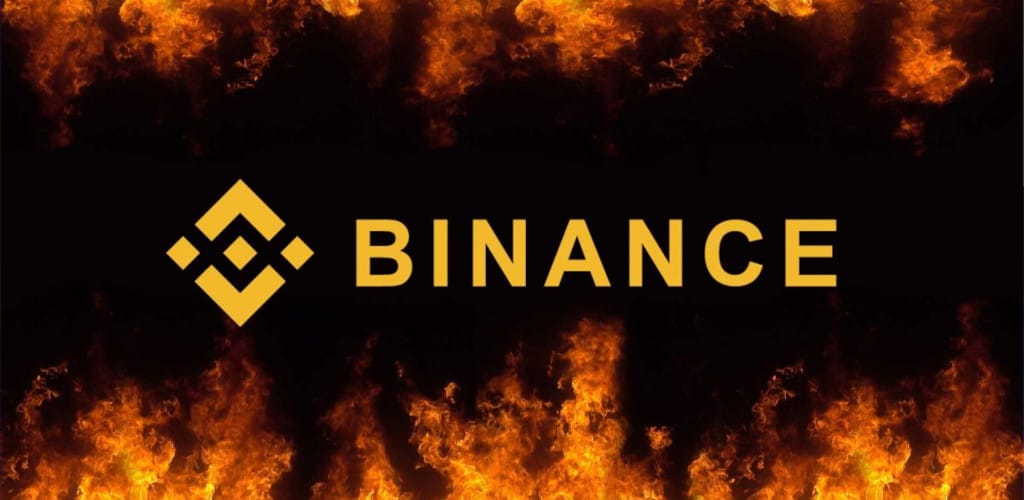Binance Under Scrutiny for Alleged Involvement in Pump-and-Dump Schemes with Memecoins

In the rapidly evolving landscape of cryptocurrency, Binance, one of the world's leading crypto exchanges, finds itself at the center of controversy. Recent allegations suggest that Binance has been listing memecoins that are central to pump-and-dump schemes, a practice that not only undermines the integrity of the market but also puts investors at significant risk. Here’s an in-depth look at the situation, exploring the implications, the players involved, and what this means for the future of crypto trading platforms.
The Allegations Against Binance
Binance, known for its extensive list of tradable cryptocurrencies, has recently come under fire for its association with memecoins which critics argue are designed primarily for pump-and-dump schemes. These schemes typically involve inflating the price of a cryptocurrency through misleading positive statements or coordinated buying, only for the orchestrators to sell off their holdings at the peak, leaving other investors with worthless digital assets.
The controversy began when several memecoins, which had no substantial utility or backing, experienced dramatic price surges followed by equally drastic falls. Investigations and community outcry pointed towards Binance, highlighting that such listings could encourage fraudulent activities, tarnishing the exchange's reputation and potentially affecting its regulatory standing.
The Mechanics of Pump-and-Dump Schemes
Pump-and-dump schemes in the crypto world operate on the basic principles of artificial hype creation. Here’s how they generally unfold:
Promotion Phase: Memecoins are often promoted aggressively through social media, forums, and sometimes through paid influencers. The aim is to create a buzz around the coin, suggesting enormous growth potential.
The Pump: Influenced by the hype, investors buy into the coin, driving up its price. This is usually a coordinated effort by a group who already holds a significant amount of the coin.
The Dump: Once the price peaks, the initial promoters sell off their holdings at a profit, crashing the price as there's little to no real demand or value behind the coin.
This cycle not only benefits those who exit early but leaves a trail of financial loss for those who buy in late, believing in the artificially created value.
Binance's Response and Industry Reaction
In response to these allegations, Binance has stated its commitment to maintaining market integrity. However, the exchange's actions have been under the microscope, with crypto enthusiasts and investors alike calling for more transparency and stricter listing criteria.
Industry experts argue that while Binance has mechanisms like listing fees and token economics checks, these might not be stringent enough to prevent such schemes. There's a push for exchanges to implement more robust due diligence processes, possibly involving deeper investigations into the token's fundamentals, the team behind it, and its community support before listing.
Legal and Regulatory Implications
The involvement of a major player like Binance in such controversies could lead to regulatory scrutiny not just for Binance but for the broader crypto industry. Regulators worldwide are already wary of cryptocurrencies due to their volatility and potential for fraud. This situation could accelerate discussions around stricter regulations for cryptocurrency exchanges, focusing on token listing standards, investor protection, and anti-fraud measures.
The crypto community is also watching closely, as the outcome could influence how exchanges operate globally. If Binance faces significant repercussions, it might set a precedent for how other exchanges manage their listings, potentially leading to a cleaner, albeit more regulated, crypto trading environment.
Looking Forward: The Path to Integrity
For Binance, and indeed for all cryptocurrency exchanges, this situation underscores the critical need for integrity in operations. Moving forward, exchanges might need to:
Enhance Due Diligence: Implement more thorough checks before listing any new cryptocurrency.
Increase Transparency: Provide clearer information about the reasons for listing tokens, including risk assessments.
Educate Investors: Offer better resources for investors to understand the risks associated with new or volatile assets.
The situation with Binance is a wake-up call for the crypto industry. If handled correctly, with increased transparency and regulatory compliance, it could lead to a more stable and trustworthy market environment. However, if left unchecked, it risks undermining the trust and legitimacy that cryptocurrencies are striving to achieve in mainstream finance.
While Binance navigates these turbulent waters, the broader implications for the crypto market's future are profound. Ensuring that exchanges do not become platforms for exploitation is crucial for the long-term viability and acceptance of cryptocurrencies.

